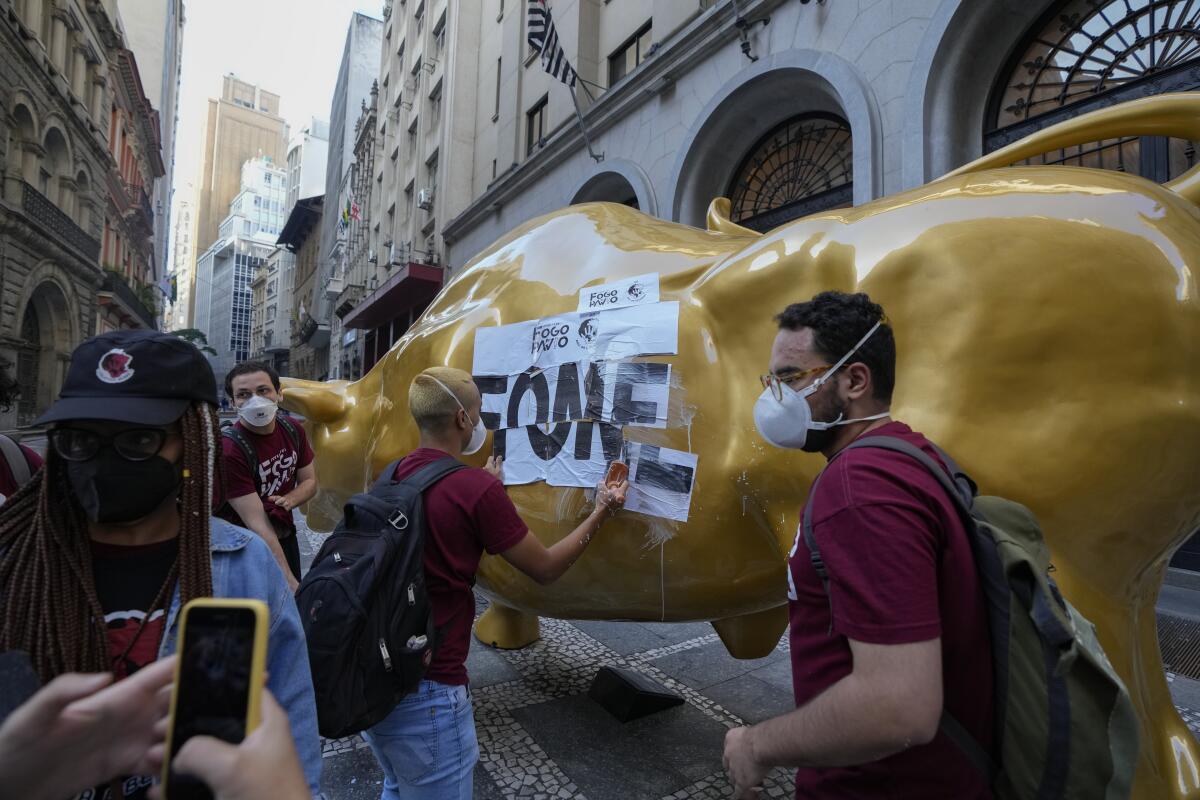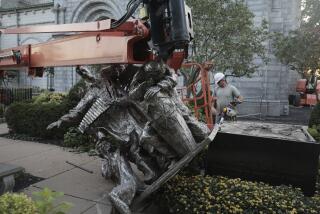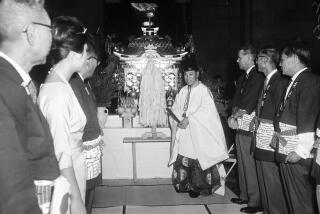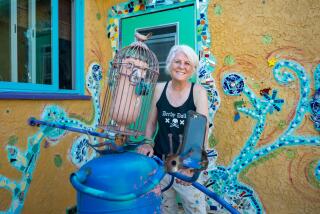Brazilians find stock exchange bull sculpture unbearable, remove it

- Share via
SAO PAULO, Brazil — Many Brazilians felt bearish about the new Wall Street-inspired bull sculpture outside the stock exchange, and didn’t have to wait long for it to crash: The statue has been removed a week after it was installed.
Sao Paulo’s stock exchange had hoped to bestow the run-down city center with a flashy landmark. But its golden sheen was offset by nearby tents for the homeless and the daily line outside a major trade union of people searching for jobs — any job.
By Tuesday night, it was gone.
Critics said the metal-and-fiberglass sculpture at the gates of the stock exchange in no way reflects Brazil’s current economic crossroads or near-term prospects, with poverty and unemployment high and inflation running in the double digits. Local media have shown poor Brazilians in several cities so desperate for food that they rummage through rejected meat scraps.
“It represents the strength and the resilience of the Brazilian people,” Gilson Finkelsztain, the stock exchange’s chief executive, said at its Nov. 16 unveiling. It was sponsored by the exchange and investor Paulo Spyer.
Spyer, who owns a consultancy firm named Vai Tourinho (“Go Little Bull” in Portuguese), said he was honored to give “a gift to all Brazilians.” Some locals were keen to snap pictures with the sculpture, which resembles the Charging Bull in Manhattan’s financial district.
But celebration was swiftly met with protests. The next day, a dozen students posted stickers that read “HUNGER” on the bull’s body. After their removal, the nonprofit group SP Invisible, which aids the poor, organized a barbecue beside the bull to feed homeless people. Both demonstrations reverberated widely on social media.
“This bull is suggesting we are experiencing some progress, but it is the exact opposite,” Vinícius Lima, one of the nonprofit’s organizers, told journalists. “Beef prices have skyrocketed. It costs double what it used to. Fewer and fewer Brazilians can afford it. That’s why we came here.”
Over the weekend, the bull’s sponsors attempted to co-opt demonstrations by asking visitors to bring food for donation. Still, the bull continued getting roasted.
City Hall’s urban planning body summoned the sculpture’s sponsors and the artist who crafted it for a meeting. Its main objection with the golden beast was that sponsors didn’t seek approval beforehand and it apparently violated a law limiting what can be displayed outdoors. Sao Paulo limits outdoor advertising.
“There is a law and it must be followed. Everyone has to be aware of the law before doing something,” Viviane Rubio, an advisor to the urban planning body, said during Tuesday’s afternoon meeting. “You needed to let us know before you placed it there.”
The bull’s creator, artist and architect Rafael Brancatelli, expressed contrition.
“I wasn’t trying to be disrespectful or go over anyone’s head. The lesson has been learned,” he said. “In another initiative, we will certainly look for you first.”
Under orders from Sao Paulo’s stock exchange, a crane took away the bull Tuesday night, its head and horns wrapped in plastic.
Maria Gomes, who has worked in the region 30 years, said Wednesday she was pleased by the removal of the sculpture, which she initially thought was an ad for a barbecue restaurant and had deemed “hideous.” Still, she felt the bull may have been unfairly blamed.
“It was a ‘scapebull,’” said Gomes, 67. “Now that it is gone, it feels better. But it is actually the same degraded city center of years ago.”
More to Read
Sign up for Essential California
The most important California stories and recommendations in your inbox every morning.
You may occasionally receive promotional content from the Los Angeles Times.










